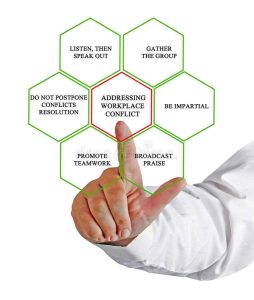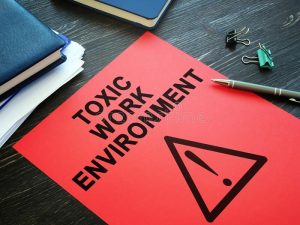
Should your Employer say sorry?
This raises the questions of “should you apologize at work?” and “how do you apologize professionally?” Lets work our way through these questions as well as the employers situation. If your going to apologize it has to be from the heart, it has to mean something to the other side. Be careful you don’t make a difficult situation worse by the lack of meaning in your apology. I do counsel you not to create a all or nothing scenario. You don’t want to end up dismissed or what may be essentially a battle of wills. I’m not down playing the value of the apology, but look at the bigger picture. Is the potential for dismissal worth it.
The employer and the employee have the mutual obligation to maintain the “trust and confidence” of the other. Also what various tribunal and court decisions refer to as the mutual obligation to be “kind and considerate” to each other. Of course what this means to one party can have a completely different meaning to the other party. Of course disputes and conflict is as old as time. How we deal with conflict in the modern workplace is a challenge. What we attempting to do is avoid that employee dismissal, to be out of a job. Or a general protections claim, where the cost can be substantial. The earliest possible intervention in disputes should always be the goal.
Sorry is not the answer to every time something goes wrong but should form part of a myriad of options available in the workplace to avoid conflict or to achieve resolution.
Apologize? Sorry, sorry, sorry, when should we say it?
You make a mistake in a civilized society, it is expected that you will apologise (sorry) to the wronged person. Everyone makes mistakes – even your employer or your boss. However, many employers steer clear of an apology. Refuse to apologise in any context as it implies fault and may expose them to some form of liability or be seen as some form of weakness. However, this issue has been combated in many legal settings and enables employers to apologise to their employees without fear.

Apologies (sorry) and Admission of Liability
For instance, full apologies (including admissions of liability) given in relation to civil liability of any kind are protected from use in court in NSW, Queensland and ACT. Apologies in any civil proceedings are protected in South Australia. In Victoria, only partial apologies in proceedings involving death or injury of a person are protected (s14J Wrongs Act 1958).
These legislative schemes operate to allow employers to apologize or express their regret following an employee suffering a workplace injury. However these statements are inadmissible as evidence in proceedings. They are excluded from being considered in determining an employers’ liability for common law damages.
Legislative amendments serve as encouragement for employers to maintain their ongoing relationship with their employees. An employer can reach out to an employee and apologise for what they have suffered in an attempt to provide support. To show compassion. Without fear that they are compromising their position in relation to their liability for any potential claims.

Apologizing in Employment Law Settlements
Many unfair dismissal and general protection cases, an apology (sorry) can play a major part in the settlement of a case. (be aware of the legislation that doesn’t not allow for an apology as part of the remedy) Almost invariably in such cases, the applicant or complainant believe that s/he is entitled to an apology because of misconduct of some kind by the employer. Dismissal from your employment is a stressful event, even when it is anticipated and/or warranted.
Whether you deem your dismissal unfair, possibly discriminatory or otherwise unlawful. The disruption, embarrassment, and injured self-esteem that result from employment dismissal. This possibly will produce anger that may stand in the way of settlement. An applicant or complainant may believe that no amount of money would suffice to undo the damage to their self-esteem.
Or that a settlement must be commercial large enough to punish the employer. On the other hand, an employer made often feel defensive and angry about the allegations of discrimination. The unlawful or unfair treatment. Employers are often of the belief that an employee’s termination is justified and the idea of an apology may be repugnant.
Difficult to overcome these emotional aspects
In either case, it is difficult to overcome these emotional aspects of employment disputes and dismissals. Thus, if a dispute is to be successfully resolved in the interests of both parties. We must consider ways of overcoming these emotional barriers. This could be through an apology. Maybe a statement of regret. Everybody has to save face, a win win situation. Not a win lose, because you might be the one losing, avoid it.

Benefits of an Apology
Apologies don’t work in every case, and in some cases, they may be necessary but not sufficient to resolve the unfair dismissal or general protections case. In some cases, an apology may not be appropriate at all. Many cases in which an apology might be useful, it is worth considering how an apology can help the parties overcome the emotional barriers to settlement.
Aforementioned, employers should not fear that apologizing to their employees admits any sort of fault or liability in lieu of any claim they may initiate. Nevertheless, it is important that employers and employees understand what an apology is and how it may benefit an employment relationship or even dispute.
The main benefit of an apology is that it encourages some moral introspection on the part of the person giving it. It requires them to internalize, to look at their behaviour and how they have treated the other person. Even if they do not admit fault. The very acknowledgement of the other person’s hurt or injury and showing regret that they feel that way, is valuable.

Should your Employer say sorry? Apologize?
This shared acknowledgment can help heal the relationship and create a more positive dynamic. In addition, if the parties involved are going to continue working together, it can set the tone for their relationship in the future. Even if an apology is not the sole resolution on the table, it can ease the path to settlement of the dispute. There can also be a financial benefit as an apology can reduce ongoing animosity which in turn may lessen the time taken to resolve the issue.
Conclusion to “Should your Employer say sorry? Apologize?”
“Should your Employer say sorry? Apologize?”. I hope this article has been of some benefit for you, and moves the conversation along for you. Talk to us, at A Whole New Approach P/L if we can assist. If your facing dismissal because your won’t apologize when its not your fault. Or you have to apologize is completely over the top, a form of humiliation or your deserve an apology, give us a call. You do not have to put up with being bullied or harassed, explore your options, it cost nothing to make the call. 1800 333 666. We work in all states including TAS, SA, ACT
AWNA are not lawyers, but leading workplace advisors, give us a call. We keep it real, confidential, honest, prompt. AWNA are leaders in workplace commentary, justice in the workplace, diversity in the workplace. All Fair work Australia matters. Probation concerns, workers rights, constructive dismissal issues, serious misconduct, general protection claims call immediately.

Similar articles to Should your Employer say sorry? Apologize?
A page that is useful reading, on negotiating in the workplace






